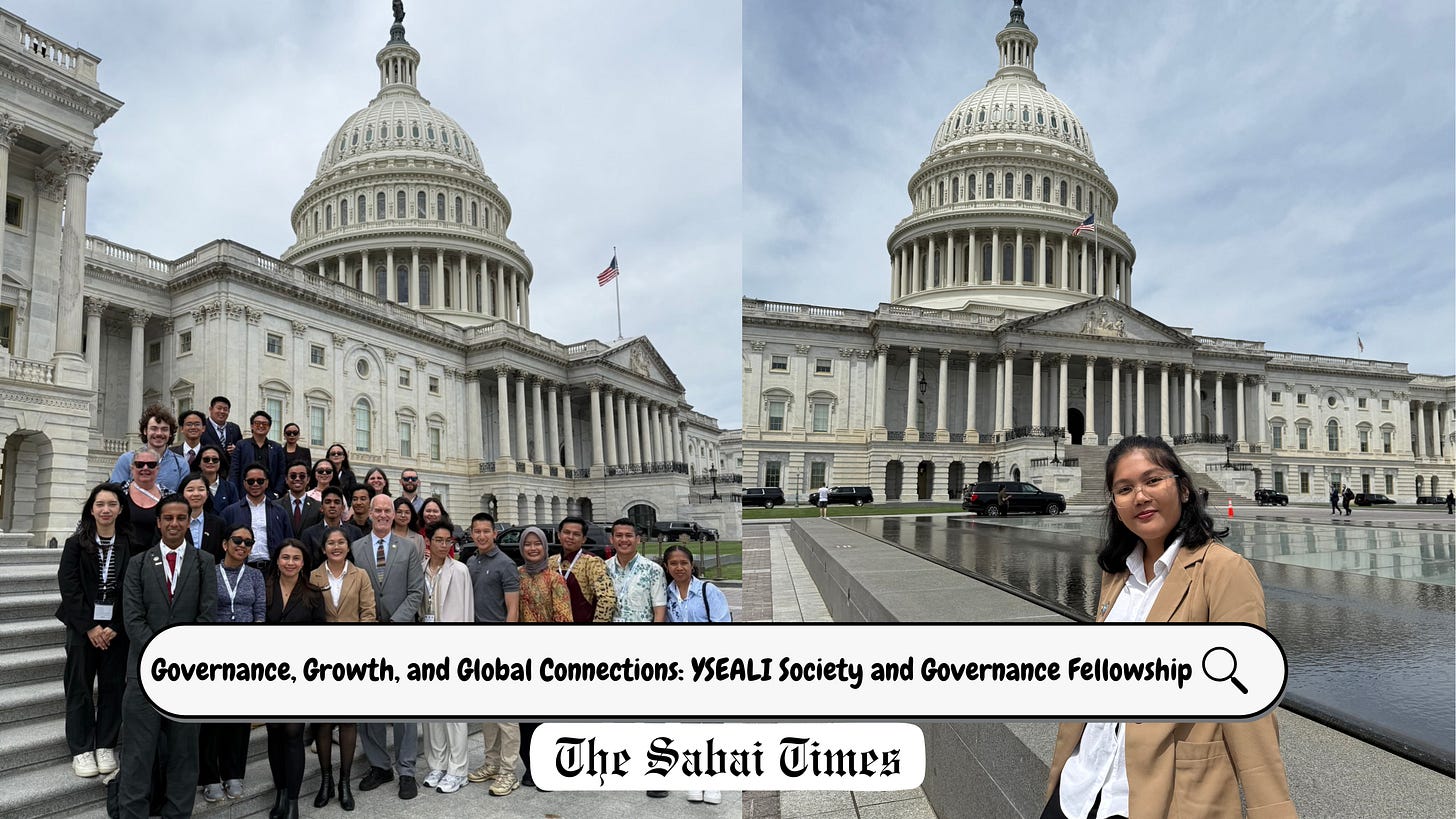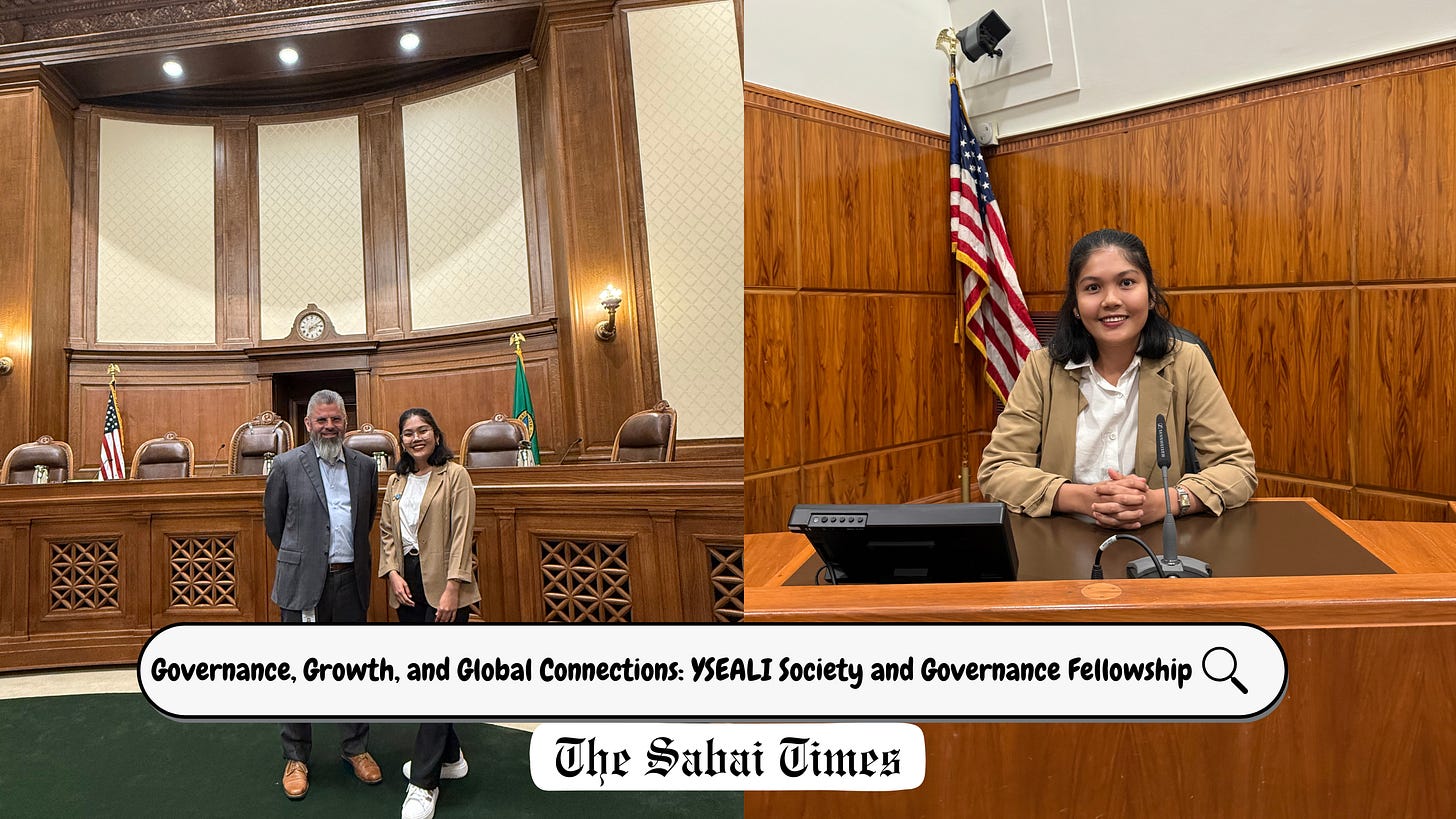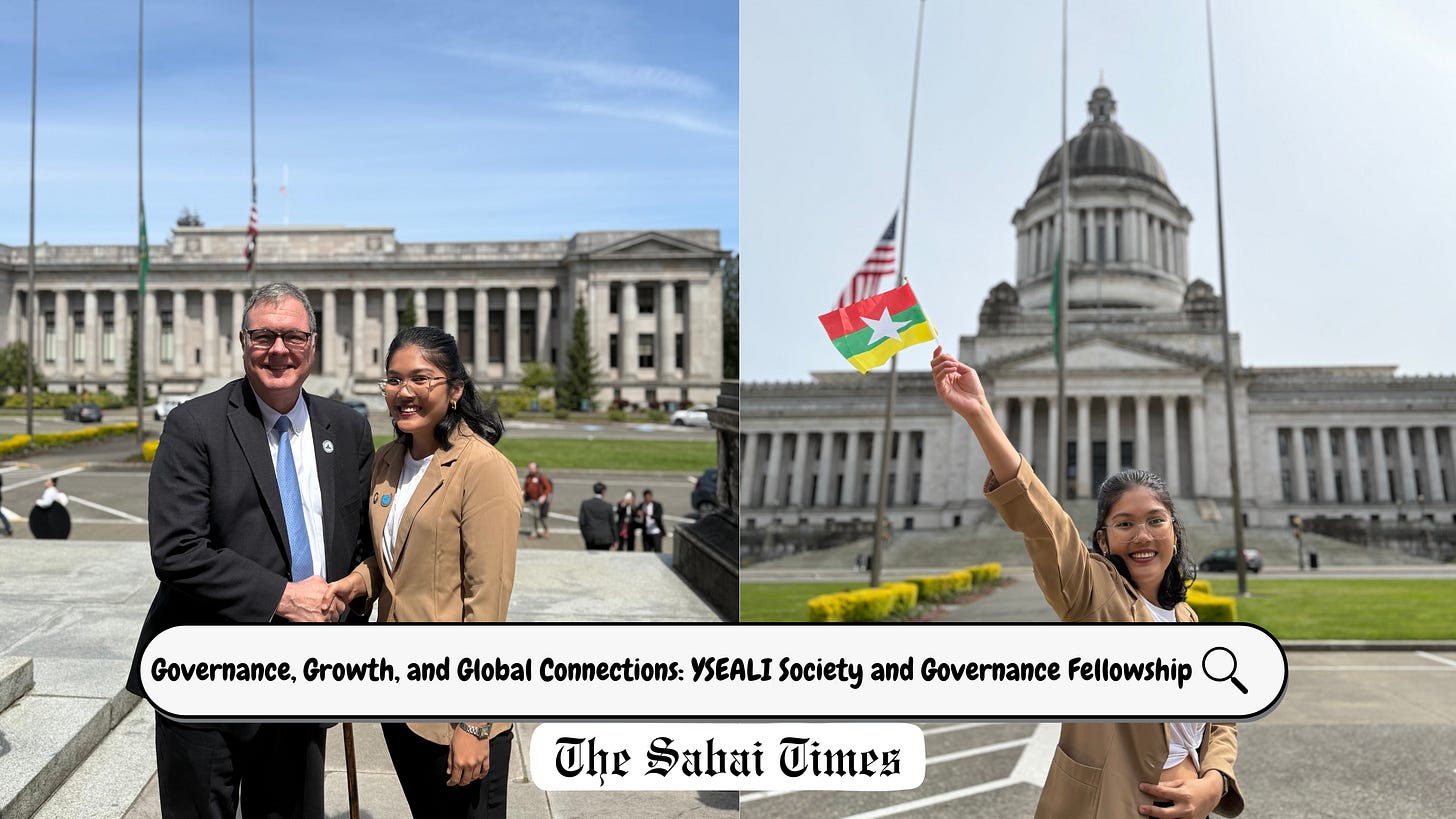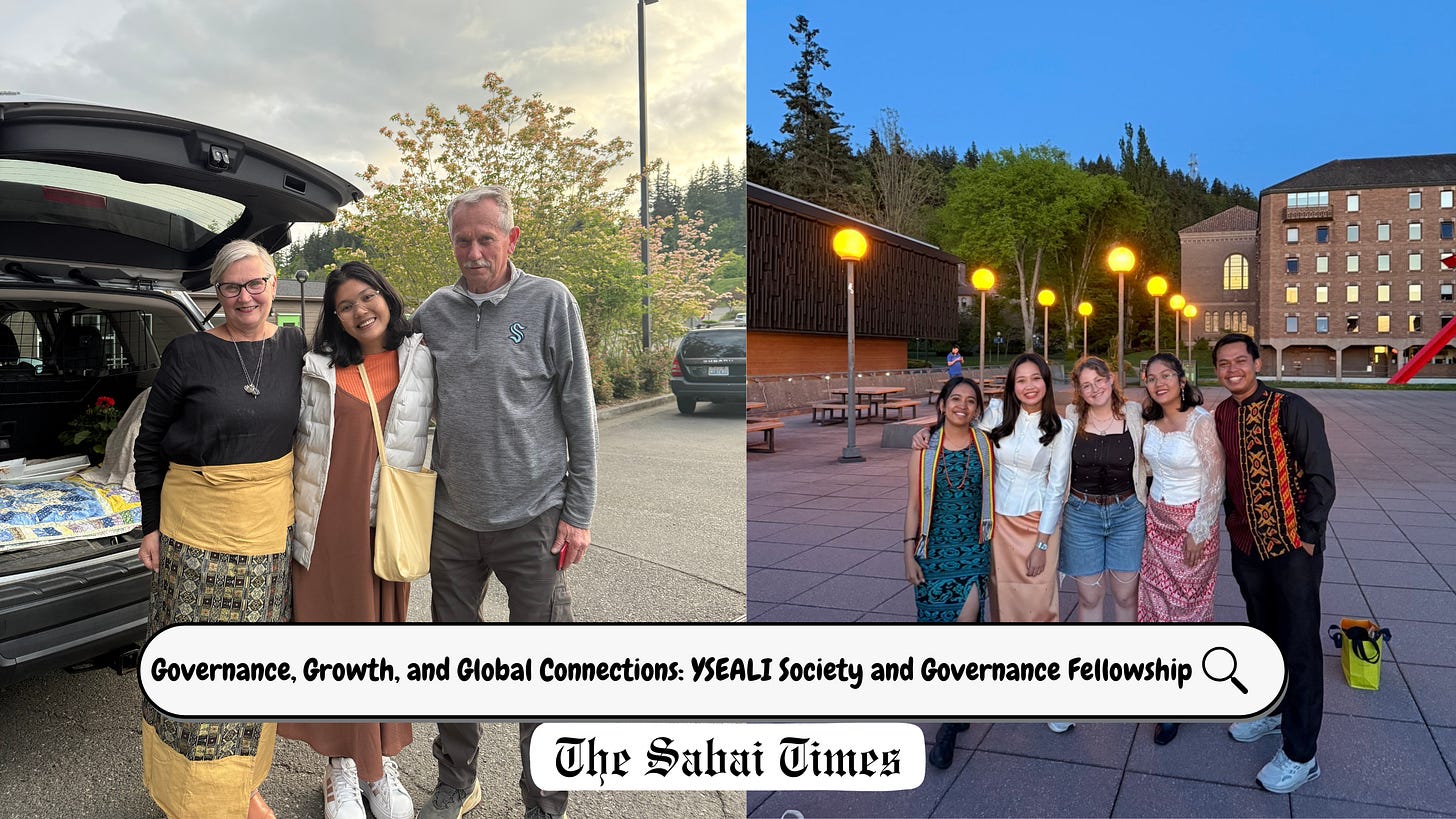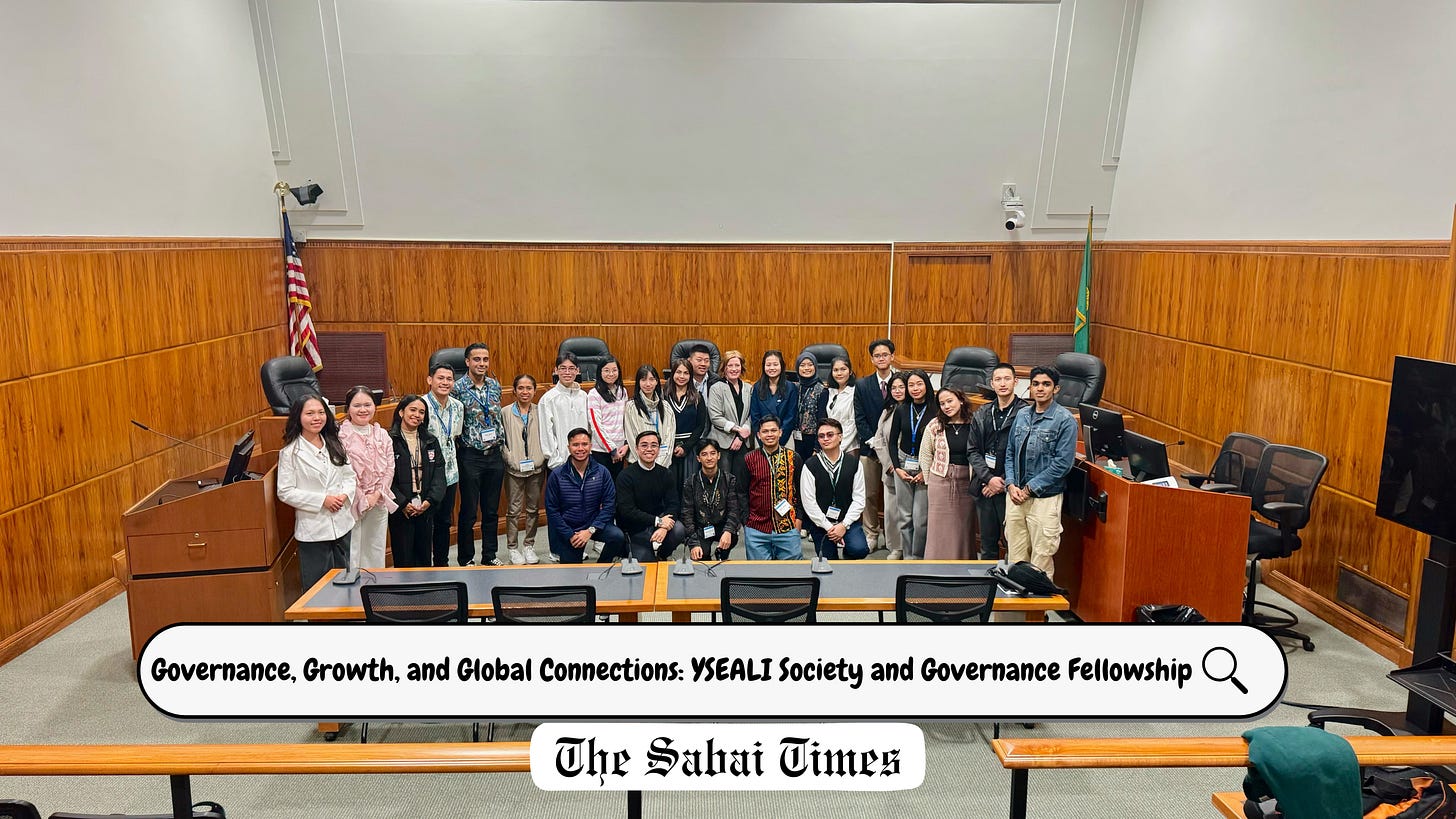Governance, Growth, and Global Connections: YSEALI Society and Governance Fellowship
SRIc Cultural Exchange
One of the most valuable lessons from participating in the inaugural YSEALI Academic Fellowship Program in Society and Governance was understanding the robust framework of Governance, Growth, and Global Connections. This became my guiding thread throughout the fellowship, teaching me the value of inclusive governance, sustainable growth, and the lasting importance of international networks.
A Transformative Five Weeks
Over the past five weeks during Spring 2025, my experience through the YSEALI Academic Fellowship Program under the theme of Society and Governance, hosted by Western Washington University in Bellingham, Washington State, has been a truly transformative and lifelong learning journey. The primary focus of this exchange program is diving into three key areas: Academic Lectures, Site Visits, and Networking & American Culture.
Academic Immersion and Learning Beyond the Classroom
My academic journey began with engaging in one regular university class alongside current students, particularly the “American Political Joint Courses,” every Monday and Friday. These sessions offered in-depth exploration into foundational topics such as American history, the revolution, and the U.S. census, framing through the lenses of inclusion and exclusion in public narratives. Our study of identity politics was compelling, and it showed how intersecting factors such as race, ethnicity, oppression, and privilege influence policymaking.
American classroom culture values critical thinking and student-led discussion and is committed to preparing ahead, actively engaging, and reflecting deeply. Alongside these university classes, our cohort participated in thematic daily lectures on democracy, conflict resolution, the legal system, U.S. federalism, and our reflection on each Southeast Asia country’s current legislative and non-profit framework. Practical workshops also equipped us with tools such as root cause analysis, stakeholder mapping, civic policy design, and collaborative governance frameworks, supporting our group project work throughout the program.
Field Visits: Governance in Action
Beyond the classroom, we engaged in site visits that brought abstract concepts into a real-world context. These included exploring city halls, non-profits, state departments in the state of Washington, and even the U.S. Capitol in Washington, D.C.
A key issue we focused on during our stays was homelessness in the U.S. as an area where and how government agencies, NGOs, and social enterprises work together to address this pressing issue. Additionally, we explored “Light House Mission” in Bellingham, a non-profit, faith-based organization that provides shelter and essential services to unhoused individuals. Exploring innovative housing solutions like the “Tiny Village Project”, and in Philadelphia, we had the opportunity to visit “Broad Street Love”, an organization known for its radical hospitality approach and its creative use of community resources to serve those in need. What truly impressed me were the services explicitly dedicated to unhoused young people. For instance, “Northwest Youth Services” in Bellingham and “Hopworks” in New Jersey offer shared housing, technical skills training, and entrepreneurship support to help transform the lives of young adults.
We also had the honor of meeting inspiring public officials, including U.S. Congressman Rick Larsen, Chief Justice of the Washington Supreme Court Steven González, Washington State Senator Keith Wagoner, Bellingham Mayor Kim Lund, and City Council President Hollie Huthman. These meetings offered us a nuanced view of the diverse responsibilities and leadership roles at the federal, state, and local levels of governance in the United States.
Equally significant was our engagement with Indigenous communities in Bellingham, including the Lummi Nation and the Northwest Indian College. These encounters shed light on Indigenous resilience, rich history, ongoing struggles, and how they have transformed challenges into opportunities to ensure their voices are heard. We also visited the North Cascades National Park to learn firsthand about natural resource management at the state level and how Washington protects and preserves its natural environment.
Connection and Cultural Exchange
The cultural components of this fellowship were equally meaningful, from weekly networking with local student organizations to friendships formed with Cultural Ambassadors, our host families, and International Student Engagement Clubs. I truthfully say every moment brought new perspectives.
Cultural immersion extended through visits to local schools, giving me insight into the American education system’s focus on including student clubs, recreational spaces like game rooms, and access to free hygiene products in public areas. These visits also provided a meaningful opportunity for mutual cultural exchange, as we shared our traditions and experiences with high school students. One of the most thoughtful parts of the program was the assignment of Cultural Ambassadors, who became our friends and constant support throughout our stay in Bellingham. We formed lasting connections with them and our host families, giving us a meaningful glimpse into American culture and everyday life.
Knowledge That Resonates Beyond Borders
This program didn’t just teach me about the brief academia field of the U.S, it helped me better understand my own country, Myanmar. As I studied the U.S. approach to homelessness, I reflected on the invisible and unaddressed challenges faced by women and youth in Myanmar since 2021. This sparked my interest in further research and action around affordable housing in Myanmar.
Furthermore, I realized how crucial collaboration is in effective governance. In the U.S., partnerships between governments, NGOs, and social enterprises are common. More clearly, inclusive development in Myanmar requires similar multi-sector collaboration.
A Lasting Impact
This program broadened my professional network across Southeast Asia. I now have connections with inspiring fellows working on Rohingya refugee issues in Malaysia, menstrual hygiene management across ASEAN, and Indigenous rights in Indonesia. These connections will help strengthen my work in Myanmar to empower women, youth, and marginalized communities.
Working on our group project deepened my commitment to advocating for minority rights, a challenge that crosses borders. I plan to carry these lessons forward in my academic research and through regional collaboration.
A Broader Vision
Participating in the YSEALI Academic Fellowship Program affirmed my dedication to inclusive development and civic engagement. I return home with not just knowledge, but a renewed sense of purpose, lifelong friendships, and a clearer vision of what is possible when people from different cultures come together to learn, share, and lead change.
Naychi Thel Kyaw Tun is a Program Manager at the Shwetaungthagathu Reform Initiative Centre (SRIc) and a YSEALI Academic Fellow in Society & Governance at Western Washington University, United States. She is also pursuing a Master’s in Development Studies at the University of Melbourne, Australia.
“Advocating Sustainability, Shaping Our Future”
Contact: sabaitimes@shwetaungthagathu.com





